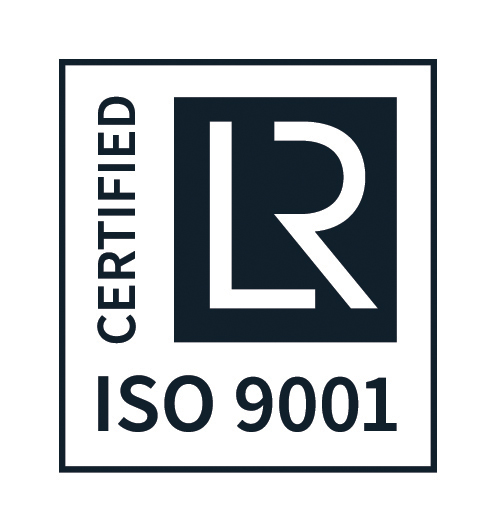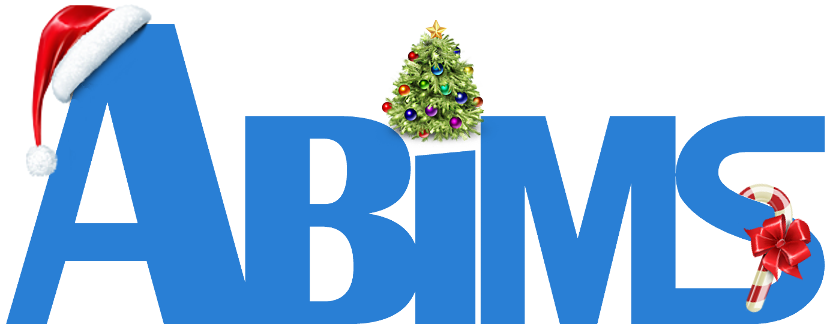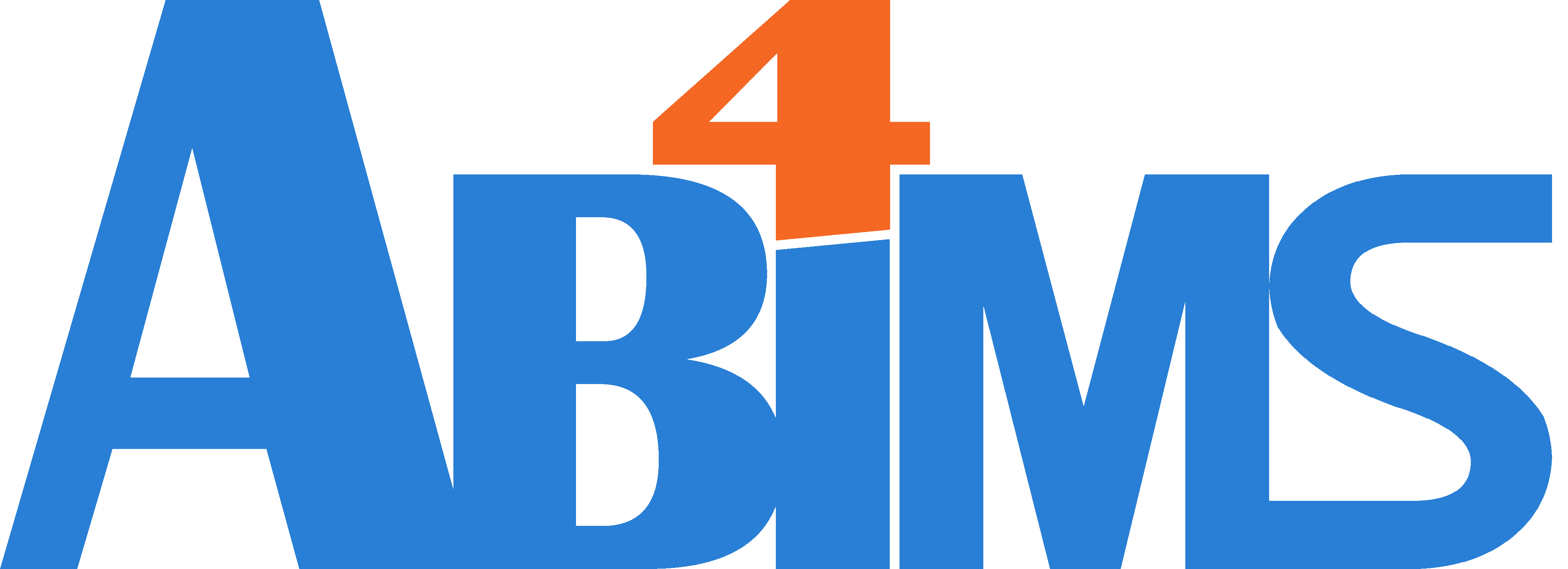
ABiMS News December 2017
Très joyeuses fêtes de fin d'année à tous .
Voici donc l'édition de décembre de la news letter ABiMS.

- Équipe : Titularisation et nouvelles arrivées
- Infrastructure : stabilisation du serveur NZ et jouvence de la solution de stockage
- E-infrastructure : implication dans de nouvelles “communities” Elixir
- Ingénierie Logicielle / Bases de données
- Bioanalyse : Participation à une nouvelle "implementation studie" au sein du projet Elixir Excellerate
- Formations
- Système de management de la qualité : labellisation ISO9001:2015
- Publications
Équipe : Titularisation et nouvelles arrivées
Titularisation : Après 8 années de contrats sur la plateforme ABiMS, Loraine Guéguen a brillamment été titularisée depuis le 1er décembre 2017 au CNRS au sein de l'UMR 8227. En étroite collaboration avec la plateforme elle poursuit son travail de développement d'environnements d’analyse de données génomique et de bases de données.
Renforcement du projet Workflow4Metabolomics : Romain Dallet à rejoint la plateforme depuis le 2 novembre dans le cadre d’un financement IFB (Institut français de Bioinformatique) et Julien Saint-Vanne rejoindra l’équipe à compter du 14 janvier 2018 dans le cadre d’un financement Biogenouest. L’un et l’autre travailleront respectivement sur le développement d’outils de visualisation et d’outils dédiés à l’analyse de données MS/MS. Le travail de Romain est co-encadré par Gildas et Christophe Caron et celui de Julien par Gildas et Yann Guitton de Nantes (Réseau Corsaire-Laboratoire LABERCA).
Masters : Nous accueillerons à compter du 8 janvier Delphine Negre et Jeremy Szymczak, étudiants en M2 qui travailleront respectivement sur la reconstruction du réseau métabolique de l'algue brune Saccharina japonica en collaboration avec Gabriel Markov et sur l’étude de l’évolution de la voie respiratoire OXPHO mitochondriale chez les dinoflagellées avec Ehsan Kayal.
Team: Titularization and new arrivals
Titularisation: After 8 years of contracts on the ABiMS platform, Loraine Guéguen has a permanent position since the 1st of December 2017 at the CNRS within the UMR 8227. In close collaboration with the platform, she is continuing her work on database and genomic data analysis developments (GMOD project).
Strengthening of the Workflow4Metabolomics project: Romain Dallet has joined the platform since 2 November as part of an IFB (French Institute of Bioinformatics) grant and Julien Saint-Vanne will join the team on 14 January 2018 as part of a Biogenouest grant. Both will work on the development of visualization tools and tools dedicated to the analysis of MS / MS data. The work of Romain is co-supervised by Gildas and Christophe Caron and that of Julien by Gildas and Yann Guitton of Nantes (Réseau Corsaire-Laboratoire LABERCA).
Masters: We will welcome Delphine Negre and Jeremy Szymczak, M2 students, who will work respectively on the reconstruction of the metabolic network of the brown alga Saccharina japonica in collaboration with Gabriel Markov and on the study of the evolution of OXPHO pathway ( mitochondrial respiratory) in dinoflagellates with Ehsan Kayal.
Infrastructure : stabilisation du serveur NZ et jouvence de la solution de stockage
Dans l’attente de la jouvence prochaine de notre solution de stockage, nous avons fait évoluer notre serveur en réalisant des mise à jour logicielles et en augmentant la mémoire vive. La nouvelle solution de stockage sera mise en production au premier semestre 2018. Elle proposera un espace scratch de 50 To sur disque SDD et 1,2 Po de stockage utile sur disque capacitif. Une migration des différents espaces projet sera progressivement proposée; des interruptions de service ponctuels sont à prévoir en conséquence.
Infrastructure: server stabilization and renewal of storage solution
While waiting for the next upgrade of our storage solution, we improved the stability of our NZ server by upgrading software and adding RAM. The new storage solution will go into production in the first half of 2018. It will offer a scratch space of 50 TB on SDD disk and 1.2 Po of storage on capacitive disk. The migration of the different project spaces will be progressively proposed. Temporary service interruptions have to be expected.
E-infrastructure : implication dans de nouvelles “communities” Elixir
ABiMS est désormais co-leader pour la France de la nouvelle communauté Elixir pour Galaxy avec les nœuds allemands et belges. La soumission de ce projet a rassemblé 43 contributeurs de 12 pays.
Les principaux objectifs sont:
- soutenir les différentes initiatives en cours en Europe autour de Galaxy: Galaxy Genome Annotation, Workflow4Metabolomics, Galaxy-P ..
- fournir une instance européenne pour les utilisateurs européens qui n'ont accès à aucune instance Galaxy locale ou nationale.
- relier Galaxy avec des ressources de base européennes (EBI-EMBL) telles que ENA / SRA, Array Express, PRIDE, MetaboLight, ... pour faciliter l'importation de données dans Galaxy
- renforcer le lien entre Galaxy et le projet BioContainer qui vise à construire des conteneurs Docker et Singularity pour les outils.
- promouvoir le Galaxy Training Network et le matériel de formation Galaxy qui contient déjà 63 tutoriels issus de 8 domaines biologiques (Métagénomique, Protéomique, Transcriptomique, ...)
- améliorer l'interopérabilité de Galaxy avec bio.tools et l'initiative Common Workflow Language (CWL) en supportant l'ontologie EDAM.
ABiMS à travers le projet Workflow4Metabolomics participe également à la nouvelle communauté Elixir pour la Métabolomique.
Galaxy4MetaB (rappel):
Une instance galaxy spécifique à l’analyse des données de metabarcoding a été mise en place. Elle intègre les outils , Qiime, mothur, FROGS, OBItools, PiCrust. Actuellement en phase de test n’hésitez toutefois pas à l’utiliser et à nous faire remonter vos remarques (support.abims@sb-roscoff.fr).
New ELIXIR “communities”
ABiMS has become one of the co-leaders of the new Elixir Community for Galaxy as french representative with the German and Belgium nodes. The submission gathered 43 contributions from 12 countries.
The main objectives are:
- support the different ongoing initiatives in Europe around Galaxy: Galaxy Genome Annotation, Workflow4Metabolomics, Galaxy-P ..
- provide a European instance for European users who don’t have access to any local or national Galaxy instance.
- link Galaxy with some European (EBI-EMBL) Core Data Resources such as ENA/SRA, Array Express, PRIDE, MetaboLight, … to ease the data import within Galaxy
- enhance the link between Galaxy and the BioContainer project aiming to build Docker and Singularity containers for tools.
- promote the Galaxy Training Network and the Galaxy Training Material which already contains 63 tutorials from 8 biological domains (Metagenomics, Proteomics, Transcriptomics, …)
- enhance interoperability between Galaxy, bio.tools and the Common Workflow Language (CWL) initiative by supporting the EDAM ontology.
ABiMS also takes part in the new Elixir for Metabolomics Community through the Workflow4Metabolomics project
Galaxy4MetaB (reminder) :
A specific galaxy instance for the analysis of metabarcoding data has been set up. It integrates the Qiime, mothur, FROGS, OBItools, PiCrust tools. Being currently in the test phase, do not hesitate to use it and send us your feedback (support.abims@sb-roscoff.fr).
Ingénierie Logicielle / Bases de données
Cette fin d’année à vu se concrétiser le renforcement déjà amorcé dans la thématique «base de données d’observation». En premier lieu, avec l’implication de la Station, au travers de la plateforme ABiMS, dans la mise à disposition de séries de suivi de biodiversité dans le réseau EMODNet Biologie. Ce projet, pour lequel la Station a reçu le soutien d’EMODNet Biology, va aboutir à sa reconnaissance en tant que Data Partner grâce au référencement de données issues de différentes bases de données mises en place par la plateforme (Benthobs, Inventaires, Pelagos). Cette dernière a donc la responsabilité de mettre en place les outils d’échanges de données entre ces bases locales et le portail d’EMODNet Biology.
De même, ABiMS a été sollicité pour co-construire, avec les partenaires de l’IFREMER et d’Altran Brest, le cahier des charges du portail PHYTOBS, dont le dossier de labellisation en tant que SNO vient d’être soumis. À court terme, le portail PHYTOBS qui sera mis en place permettra également d’accéder aux données labellisées PHTYOBS, extraites de la base Pelagos.
Software Engineering / Databases
The end of this year saw the reinforcement of work already started in the field of “observation databases”. Firstly, with the involvement of the Station, through the ABiMS platform, in the provision of biodiversity monitoring series in the EMODNet Biology network. This project, for which the Station has received support from EMODNet Biology, will lead to its recognition as Data Partner thanks to the integration of data from various databases developed and maintained by ABiMS (Benthobs, Inventaires, Pelagos) . The platform is therefore responsible for setting up data exchange tools between these local databases and the EMODNet Biology portal.
Similarly, ABiMS was asked, together with our partners at IFREMER and Altran Brest, to contribute to the specifications of the PHYTOBS data portal. The data management issues constitute an important aspect in the labelling of PHYTOBS as an SNO, which has very recently been requested. In the short term, the PHYTOBS portal that will be set up will also provide access to the PHTYOBS labeled data extracted from the Pelagos database.
Bioanalyse : Participation à une nouvelle "implementation studie" au sein du projet Elixir Excellerate
A partir de janvier 2018 :
Le use case de «métagénomique marine» du projet ELIXIR excelerate (WP6) a adopté l'utilisation du langage CWL (Common Workflow Language) comme moyen interopérable de décrire ses pipelines d'analyse. L'un des workflows CWL les plus complexes et les plus développés met en œuvre le pipeline d'analyse de métagénomique de l’EBI. En coordination avec MG-RAST, un pipeline d'analyse métagénomique basé aux États-Unis, il existe donc désormais deux pipelines CWL de métagénomique à grande échelle.
Dans ce use case, nous travaillerons avec nos collègues du Genoscope (E. Pelletier) :
- en fournissant des exemples de données provenant de la base de données de référence transcriptomique eukaryotique marine,
- en développant le pipeline et
- en analysant les résultats.
Les autres collaborateurs du projet sont des chercheurs de l'institut Pasteur, ELIXIR-EBI, ELIXIR-UK (uniman), ELIXIR-FI (CSC) qui travailleront sur Galaxy - CWL (ToolDog), les outils d'enregistrement, outils CWL pipeline, docker , la soumission des données à l'ENA.
The Marine Metagenomics Use Case has adopted the use of the Common Workflow Language (CWL) as an interoperable means to describe their analysis pipelines. One of the most complex and fully developed CWL workflows implements the EBI metagenomics analysis pipeline. In coordination with MG-RAST, a US based metagenomics analysis pipeline, there are now two different large-scale metagenomics CWL workflows.
In this project we will work wiith colleagues from Genoscope (E. Pelletier) in providing example data comming the MArine Reference Eukaryotic Transcriptom DataBase, developing workflows and analyzing results. Other collaborators are researchers from Institut Pasteur, ELIXIR-EBI, ELIXIR-UK (uniman), ELIXIR-FI (Csc) and will contribute work on Galaxy – CWL source to source conversion (ToolDog), tool registration, Tools CWL pipeline, docker/tools, data submission to ENA.
Formations
Une «session d’automne» d’ateliers de formation dédiés à Linux et à l'utilisation du cluster s’est tenue fin novembre/début décembre et a accueilli près de vingt-cinq stagiaires. Mi-janvier 2018 se tiendra une nouvelle session de trois jours entièrement consacrée au langage Python et axée principalement sur la gestion de données. Son objectif n’est pas tant d’énumérer l’ensemble des structures de données et de contrôle du flux d’exécution offerts par ce langage. Il s’agira plutôt de se familiariser avec les opérations courantes de lecture de données à différents formats, de leur représentation en mémoire de manière à pouvoir en extraire des sous-ensembles pertinents, des outils permettant de les combiner et de génération des sorties adaptées.
Cette session inaugurale est destinée prioritairement à la communauté d’utilisateurs de la Station. En fonction des retours, des sessions ultérieures pourraient être ouverts plus largement.
Training
An "autumn session" of training workshops dedicated to Linux and the use of the cluster was held at the end of November / beginning of December and saw the participation of nearly twenty-five trainees. Mid-January 2018 a new three-day session will be held entirely devoted to the Python language and focused primarily on data management. Its purpose is not so much to enumerate all the data structures and execution flow control instructions offered by this language. It will be rather aimed at becoming familiar with the every day operations of reading data in different formats, building suitable representations in memory in order to be able to extract relevant subsets, and manipulating tools allowing them to be combined and before generating suitable outputs.
This inaugural session is intended primarily for the Station user community. Depending on the feedback, subsequent sessions could be opened more widely.
Système de management de la qualité : labellisation ISO9001:2015
A l'issue d'un audit réalisé par la société LRQA le 20 et 21 novembre, la plateforme a renouvelé sa certification pour un nouveau cycle de 3 ans. L'ensemble des activités de la plateforme est donc maintenant certifié selon la nouvelle version de la norme ISO9001 (version 2015).
Quality management system
Following an audit carried out by LRQA on November 20th and 21st, the platform renewed its certification for a new cycle of 3 years. All of the platform's activities are now certified according to the new version of the ISO9001 standard (2015 version)
Publications
- Baptiste Houyvet; Yolande Bouchon-Navaro; Bouchon Claude; Didier Goux; Benoit Bernay; Erwan Corre; Celine Zatylny-Gaudin. Identification of a moronecidin-like antimicrobial peptide in the venomous fish Pterois volitans: functional and structural study of pteroicidin-<alpha>. November 2017. Fish & Shellfish Immunology 72, DOI 10.1016/j.fsi.2017.11.003
- Simon M. Dittami.; Erwan Corre. Detection of bacterial contaminants and hybrid sequences in the genome of the kelp Saccharina japonica using Taxoblast . November 2017. PeerJ 5(20):e4073. DOI10.7717/peerj.4073
- Björn Grüning, Ryan Dale, Andreas Sjödin, Jillian Rowe, Brad A. Chapman, Christopher H. Tomkins-Tinch, Renan Valieris, The Bioconda Team (Gildas le Corguillé inside), Johannes Köster.Bioconda: A sustainable and comprehensive software distribution for the life sciences. bioRxiv 207092, October 2017. doi: https://doi.org/10.1101/207092.
- Bérénice Batut, Saskia Hiltemann, Andrea Bagnacani, Dannon Baker, Vivek Bhardwaj, Clemens Blank, Anthony Bretaudeau, Loraine Guéguen, Martin Čech, John Chilton, Dave Clements, Olivia Doppelt-Azeroual, Anika Erxleben, Mallory Freeberg, Simon Gladman, Youri Hoogstrate, Hans-Rudolf Hotz, Torsten Houwaart, Pratik Jagtap, Delphine Lariviere, Gildas Le Corguillé, Thomas Manke, Fabien Mareuil, Fidel Ramírez, Devon Ryan, Florian Sigloch, Nicola Soranzo, Joachim Wolff, Pavankumar Videm, Markus Wolfien, Aisanjiang Wubuli, Dilmurat Yusuf, Rolf Backofen, Anton Nekrutenko, Björn Grüning. Community-driven data analysis training for biology. bioRxiv 225680; doi: https://doi.org/10.1101/225680
- Adriana Lopes dos Santos, Thibaut Pollina, Priscillia Gourvila, Erwan Corre, Dominique Marie , José Luis Garrido , Francisco Rodríguez , Mary-Hélène Noële, Daniel Vaulot and Wenche Eikrem. Chloropicophyceae, a new class of picoplanktonic prasinophytes from the sunlit oceans.Scientific Reports accepted (1):1-20 · October 2017. DOI: 10.1038/s41598-017-12412-5.
- Ehsan Kayal, Bastian Bentlage, M. Sabrina Pankey, Aki H. Ohdera, Monica Medina, David C. Plachetzki, Allen G. Collins, Joseph F. Ryan. Comprehensive phylogenomic analyses resolve cnidarian relationships and the origins of key organismal traits. 2017. Accepted in BMC. PeerJ Preprints 5:e3172v1 https://doi.org/10.7287/peerj.preprints.3172v1
- Log in to post comments
